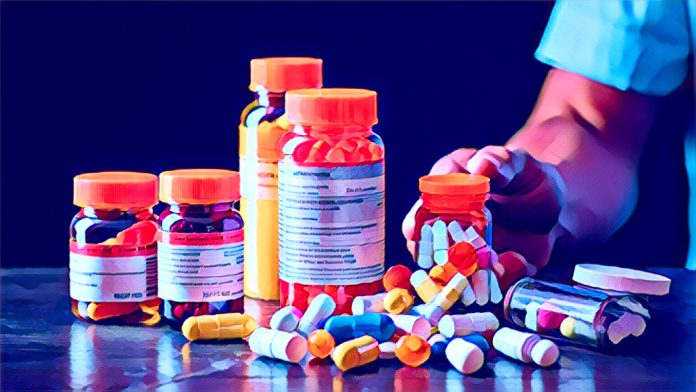Key Points
- Fake drugs sold on social media are causing blindness, kidney failure, strokes, and deaths in Nigeria.
-
Victims share painful stories of deception, from eye drops to herbal cures that nearly cost their lives.
-
Experts and regulators warn of a looming health crisis as unregulated online pharmacies continue to spread.
Soaring healthcare costs and widespread drug shortages are driving Nigerians to social media for cheaper alternatives.
But what looks like a solution is turning deadly. From Facebook to Instagram and WhatsApp, vendors are selling unregulated medicines without prescriptions or medical guidance.
Patients desperate for relief are instead falling victim to scammers and counterfeiters. They end up with blindness, kidney failure, strokes—or worse, death.
Experts describe it as a “silent epidemic” that is unfolding not in hospitals, but through phone screens and doorstep deliveries.
What began as a convenience has become a health crisis. Medicines for diabetes, high blood pressure, eye conditions, infertility, and prostate issues are now marketed online as miracle cures.
Many come with glowing testimonials, but they often hide dangerous ingredients.
Victims pay the price with their health
Amaka, a 23-year-old student, learned the hard way. She ordered “instant whitening” eye drops on Instagram after her eyes turned red and watery.
Within two weeks, her vision blurred, and doctors warned she was on the verge of permanent blindness.
“I thought I was saving time and money. I nearly paid with my eyes,” she said.
For 52-year-old Joana, a trader at Lagos’s Balogun Market, the outcome was even more devastating.
After trusting a Facebook vendor who promised a cure for hypertension, she abandoned her prescribed drugs.
Weeks later, she collapsed at her stall from a stroke. Tests revealed her herbal mixture was laced with steroids and caffeine.
Other victims tell similar stories. Temitope, 34, developed kidney failure after drinking a detox tea promoted by influencers.
Gym enthusiast Chinedu Ibe, 28, died after using online energy boosters. Mama Biodun, 60, landed in the hospital after swapping her diabetes medication for TikTok herbal remedies.
Every week, experts estimate, at least five patients collapse from unregulated herbal products in Nigeria.
Doctors and pharmacists sound alarm
Medical professionals are unanimous: there are no shortcuts in treating chronic illnesses.
Dr. Femi Olaleye, Medical Director of the Optimal Cancer Care Foundation, said many patients arrive too late, when the damage from online drugs is irreversible.
“I have seen patients with corneal ulcers, severe allergies, glaucoma complications, and even permanent vision loss from counterfeit or wrongly used products,” Olaleye said.
“The safest approach is to buy only from licensed pharmacies or recognized hospitals.”
Pharmacists warn that bypassing professionals exposes patients to deadly drug interactions.
Former Pharmaceutical Society of Nigeria president Olumide Akintayo said: “Bypassing pharmacists and pharmacies in drug use makes you extremely vulnerable. These consequences may cause morbidity or outright mortality.”
Doctors also stress that the sale of unverified drugs online is not just dangerous but illegal.
Lagos NMA Chairman, Dr. Saheed Babajide, said: “What we see every day is kidney failure, strokes, blindness, and even mental illness linked to misuse of these drugs. Anybody involved should be prosecuted. NAFDAC must wake up.”
Regulators struggle to keep up
The National Agency for Food and Drug Administration and Control (NAFDAC) admits the problem is worsening.
Director General Prof. Christianah Adeyeye said the agency is tracking vendors across Instagram, Facebook, Jiji, Jumia, and Konga.
Some sellers have been fined or arrested, but many resurface under new names.
“Online drug sales have become a growing concern in Nigeria,” Adeyeye said.
“We are working with platforms like Jumia and Konga and deploying technology like the Scan2Verify system to help buyers confirm authenticity.”
Still, enforcement is weak. Small businesses and personal platforms mushroom faster than regulators can act.
Former PCN registrar Dr. Elijah Mohamed said only licensed online pharmacies with physical addresses should be trusted.
“Otherwise, self-medication will spread with devastating consequences,” he warned.
A national health emergency in the making
As Nigeria’s digital marketplace expands, experts fear this crisis could overwhelm an already fragile healthcare system.
With the country’s life expectancy still among the world’s lowest, fake drugs threaten to push it further down.
For Amaka, Joana, Chinedu, Temitope, and countless others, a simple online purchase nearly cost them their lives.
Their stories are warnings: a phone screen may offer hope, but the cost can be deadly.



